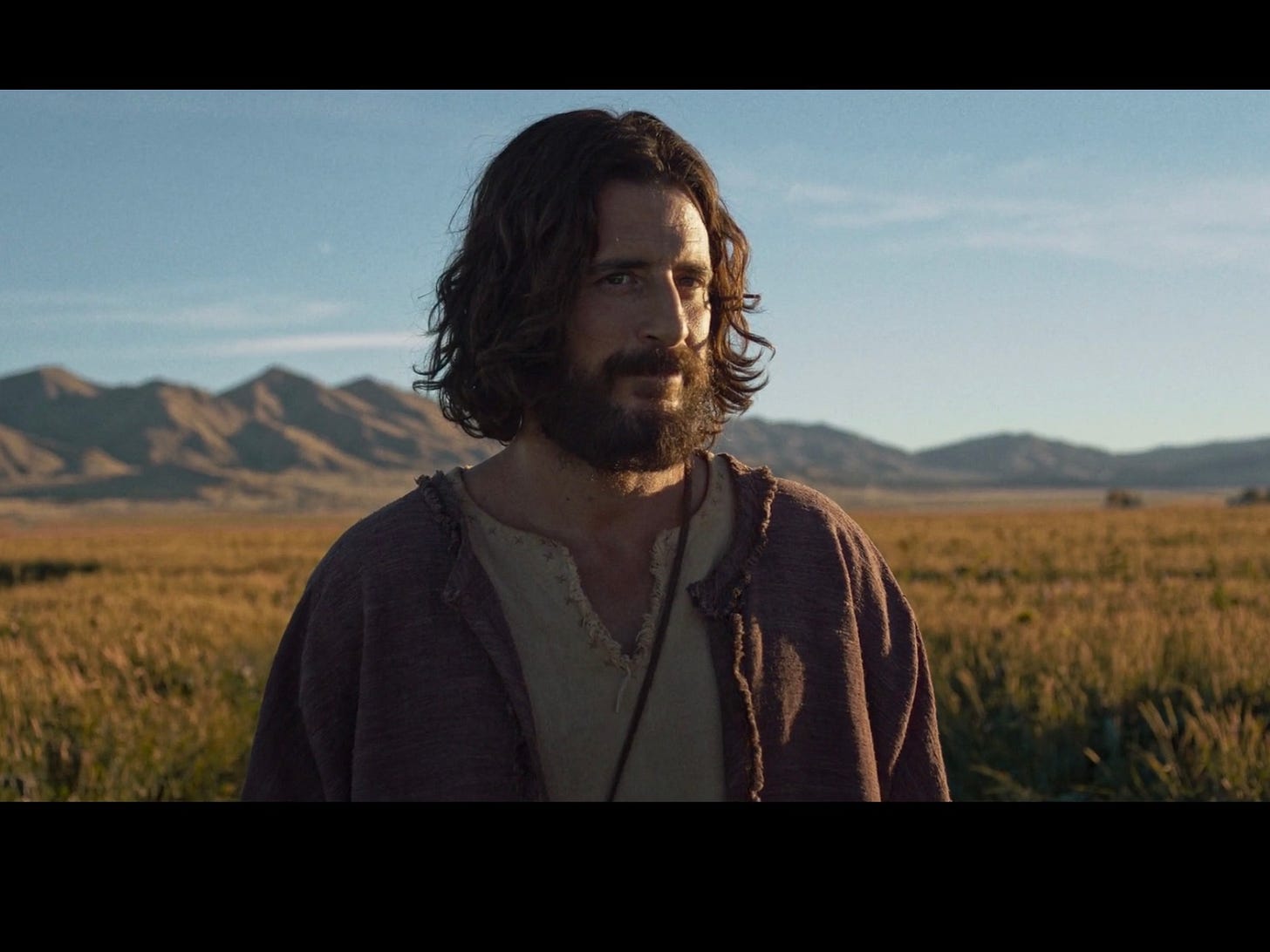The apocalypse isn’t as advertised.
The typical advertisement of the apocalypse in our collective cultural consciousness seems to be this: it’s something very much like a cosmic battle between Capital-G-Copyright-Good and Capital-E-Copyright-Evil. There’s a very clear and helpful dividing line between these two sides.
Almost all of us, save for a few contrarians, anticipate that we will be on the Good side of things. This is strange, considering how epic this final, history-closing clash is supposed to be. Will the end of all history find a vast majority of the Good human population coming to the great and final battle on the plains of Megiddo, swords in hand, only to find on the side of Evil a small, ragtag band of gangly teenagers dressed in all black and adorned with pentagrams custom-ordered off Etsy?
But we all know the apocalypse, the end of the long book of human history, cannot be so banal, so anti-climatic.
It becomes quite clear, then, where the discrepancy lies, between what seems logical for the apocalypse based on my own current survey of human self-perception, and what we all seem to know, on a base, instinctual level, what will actually happen.
We see the apocalypse as this Great War of all against all, Good against Evil, but that may not actually be the case. While the apocalypse could very well encompass that, the true heart of the apocalypse may be something quite different than that.
“He is sifting out the hearts of men before his judgment seat
Be swift, my soul, to answer him, be jubilant, oh my feet!
Our God is marching on.”
— “Battle Hymn of the Republic”
Angel Studios’ production of “The Chosen,” a multi-season TV series about the ministry of Christ, shows some particularly poignant examples of what the apocalypse is like — and we can compare notes and assume that the second coming of Christ will be much like the first. Since the second coming of Christ is the overarching story of the apocalypse, we may be able to glean something about what the apocalypse actually means.
In S2E06 of the show, “Unlawful,” Jesus and his followers show up at synagogue on Shabbat. They come into a synagogue in a town where they are not known, a motley crew of men and women, clearly from different class and labor backgrounds, all of them following this shabbily dressed itinerant preacher. Immediately, Jesus spots the man with the withered hand (c.f. Matthew 12, Mark 3, Luke 6) and heals him.
The Pharisees are angry about this healing on the Sabbath, a holy day on which a number of specific items, including healing, are forbidden to Jews. The Pharisees chase Jesus out, and, in the show, very shortly follow him and his disciples to find them eating grain on the Sabbath, another unlawful action.
Consistent with Scripture, Jesus challenges the Pharisees: “The Son of Man is Lord of the Sabbath.” Horrified, mouths agape, the Pharisees scurry away.
And why do they scurry? Why is the entirety of the Gospels littered with stories where Jesus directly challenges all these persons across many different social classes and backgrounds, many of whom find themselves slinking away and exiting the Gospel narrative altogether, never to be seen or heard from again, lost to all history?
Well, it’s because that’s the nature of Jesus. He is “sifting out the hearts of men before his judgment seat,” even if he is walking in the fields or sitting in a house. Everywhere he goes is the judgment seat, because Jesus is nothing if not fully and completely apocalyptic. His entire nature, fully-God-fully-man, of virgin born, dead-and-risen-again, defies any of our neat little categories. He is the Molotov cocktail thrown against the walls of history, but he is no Shiva. He does not destroy and rebuild in an endless cycle; instead, he constantly destroys everything that comes in his path in a way that refashions it anew for all time, in a long, linear march toward something new, something different.
And why shouldn’t Jesus be apocalyptic? If we can all agree that there are some serious problems that seem to have plagued humanity for quite some time, and we seem to be not very good at figuring out how to resolve these problems once and for all, then an apocalyptic Savior may be very appropriate to rectify the situation. We may find ourselves in the hands of a Divine Physician who will painfully but compassionately break our jaw so that we can finally open up a windpipe that lets us breathe so much more easily.
That is the nature of Jesus. He is neither Essene nor Zealot, Pharisee nor Sadducee, anti-Roman nor pro-Roman. I want to chuckle when I hear Americans talk about “who Jesus would vote for” and use that thought process as an exercise to their own voting decisions. To assume that Jesus would be a card-carrying member of any political party is to miss his apocalyptic message altogether. He will defy all your attempts to categorize him, because he is not like anything that has ever come before.
“I’ve seen the nations rise and fall,
I’ve heard their stories, heard them all,
But love’s the only engine of survival”
— Leonard Cohen, “The Future”
Where are we going? It’s always a good question to ask. It’s very easy to find ourselves gripped in the immediate reality of the present moment, particularly when attractive objects of mimetic rivalry present themselves. We can find ourselves easily hooked into the fight right-here-and-now, the them-and-us, and it can feel particularly intoxicating because we’re wired to do exactly that.
What is all this sweet work worth, if the future does not love us? One day, all the arguments of the present age will find themselves in the dustbin of history. Given sufficient time, we will find ourselves arriving to a point where a young generation will learn our arguments by rote, and they will have as much interest in our great dramas as we do on the finer points of Roman social and legal code. All the nations of the present age will be as dust in the balance, and one day nothing more than idle curiosities for egghead historians in sweater vests.
What then, can we hold onto, even as this apocalyptic Savior comes? He will challenge our ideologies, our categories, and most of all, he will challenge our own perception of ourselves. We, the vast majority of humanity who fight these daily fights and firmly believe that we are on the side of Good, whatever that means to us, and await the defeat of the Evil, whatever that means to us, will find Jesus extremely challenging. I can only imagine that every single group at the time of Christ would have well expected that, when the Messiah came, he would give their specific group, their goal, the great blessing of his approval. They, and they alone, would have been doing the Lord’s work, and they would get a pat on the head and a cookie for their devotion, their zeal, especially in opposing those who quite naturally needed opposing.
But at no point in the Gospels does Jesus, the Messiah, do such a thing. He does not lead the charge against the Romans with the Essenes, he does not stone a woman with the Pharisees, he does not join the ranks of the Sadducees, he does not demand his followers seclude themselves away with the Essenes.
No. He isn’t like that. The Narnian beaver’s famous quote holds true: he isn’t a tame lion. Each person he encounters in the Gospels, he encounters apocalyptically. He constantly reframed what is actually happening, shows how the Pharisees and Saducees are not what they construct themselves to be, the law abiding persons are less than those who offer mercy, the rich young man is not as clever as he thinks, and on, and on. And under all of this — the fact that we aren’t who we think we are. Many of us will unexpectedly find ourselves on the side of Evil when he comes to sift out the hearts of men, and some of the gangly tenagers may find themselves, to their own surprise, on the side of Good.
“Yet she could we by their shocked and altered faces that even their virtues were being burned away.”
—“Revelations” by Flannery O’Connor
When the Son of Man comes, will he find faith on Earth?
Personally, I doubt it.
And so, he will come to us apocalyptically, breaking open that which has been hidden, most especially from ourselves.
What can we do with that knowledge? It’s unsettling. There is no ground, the center cannot hold, the house is divided against itself. All of our petty thoughts, our deep investments, our loyalty to this, that, and the other — is already gone, fading even now, being borne back ceaselessly into the past.
There is nowhere to go, nowhere left to turn but to the apocalyptic Savior himself, and to embrace him fully, completely, without reservation. It is only the apocalyptic Savior who is worth anything, and does not fade, but instead marches in lockstep with the long arc of history into the new Heaven and the new Earth. He is the only thing that we can grasp onto as eternal, and if we allow him to approach us and embrace him in the living koan that he is, shattering all our conceptions, then it is then that we can find ourselves on the other side of the Jordan, baptized anew in the Promised Land.





